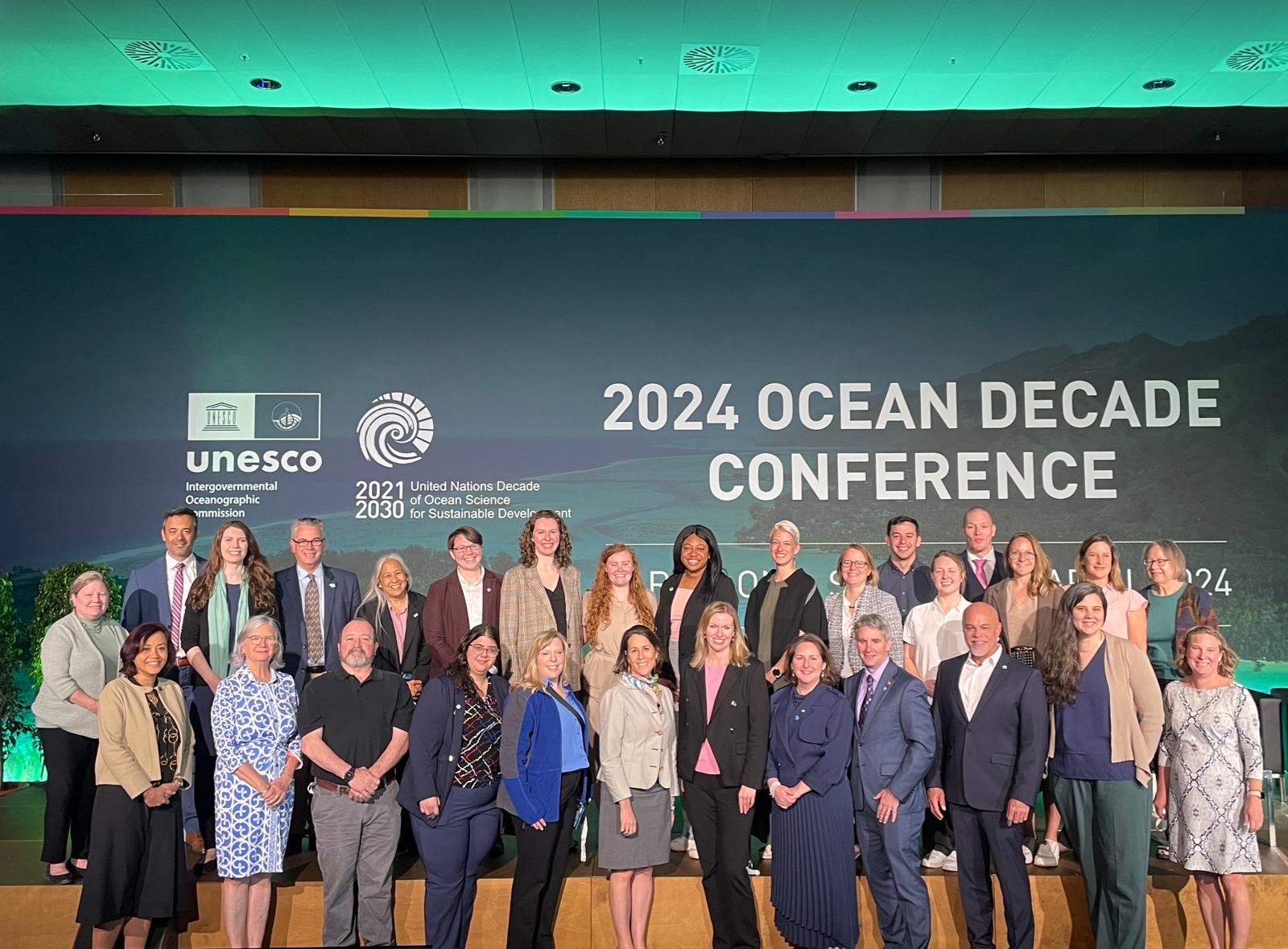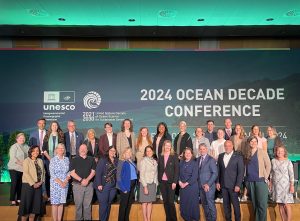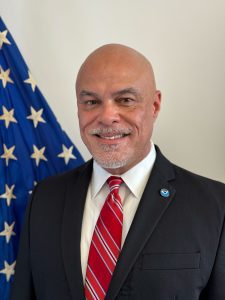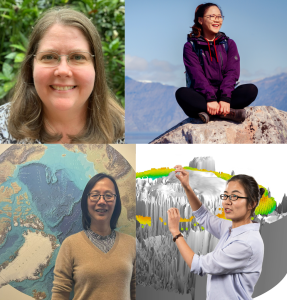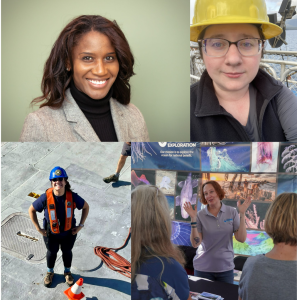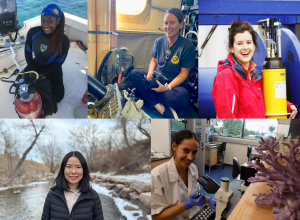Ten Years. Ten Challenges. One Ocean.
The UN Decade of Ocean Science for Sustainable Development is the largest global ocean science initiative ever taken. Taking place from 2021-2030, this decade-long framework seeks to stimulate ocean science and knowledge generation to reverse the decline of the state of the ocean, and catalyze new opportunities for a sustainable marine economy.
From April 12-14, 2024, over 1,500 scientists, government and UN officials, philanthropic organizations, industry leaders, students, and communicators came together to celebrate recent accomplishments and look towards the future of scientific contributions at the 2024 Ocean Decade Conference.
Two of NOAA Research’s Knauss Fellows were on the ground in Barcelona, Spain. Dr. Jai Tiarks (they/them) has a background in freshwater ecology and is a Knauss Fellow in NOAA Research’s Office of International Activities. Dr. Emily Nocito (she/her) is an Ocean Decade Knauss Fellow whose background is in international marine governance and conservation.
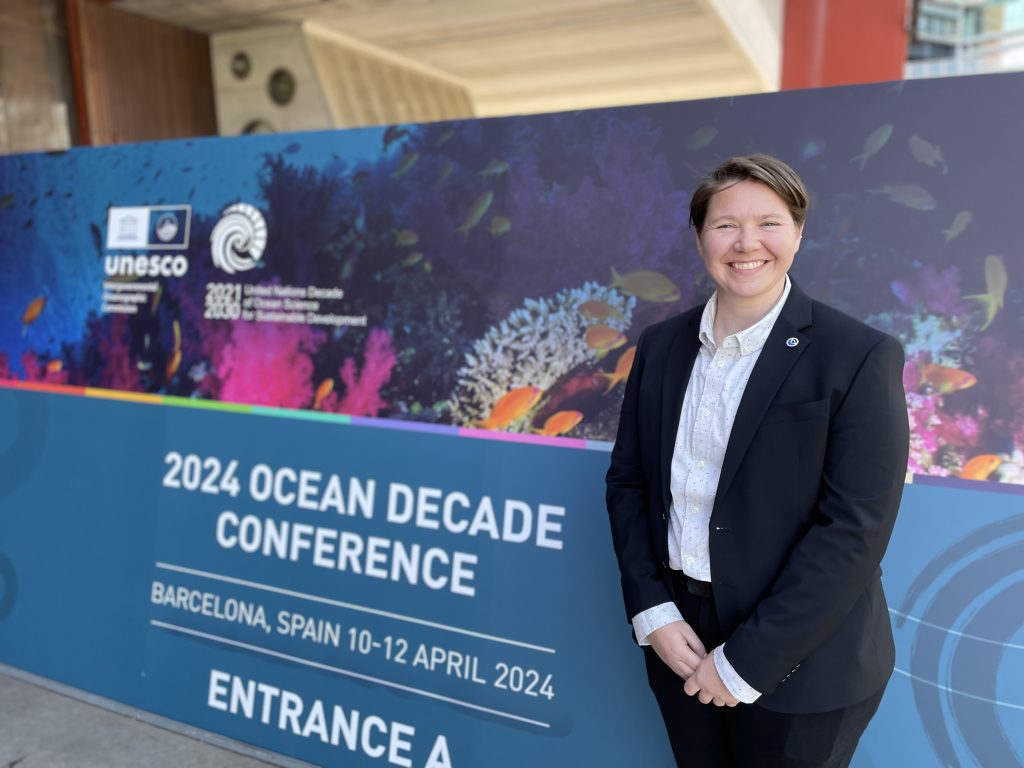
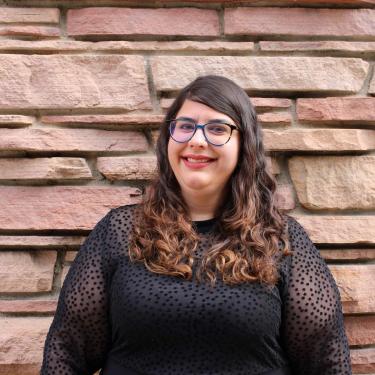

We were able to sit down with Jai and Emily to learn more about their work in ocean science and their experiences supporting this global initiative for ocean health. Continue reading to hear what they had to say.
Tell me a little bit about your role at NOAA Research.
Jai: My Knauss Fellowship in the Office of International Activities has given me the opportunity to build a skillset in international collaboration. Along with my office, I help facilitate collaboration with NOAA labs and programs and international partners.
Emily: I’m really lucky in that my Knauss Fellowship in NOAA Research allows me to work in two different but important areas. One area is related to the domestic implementation of the UN Ocean Decade – in this role, I serve as the USA Early Careers Ocean Professional (ECOP) Node coordinator. As the USA ECOP Node coordinator, I engage and communicate with our members and other relevant organizations, and work with other national and regional coordinators and the Global ECOP Programme. I also work closely with the US National Committee for the Ocean Decade, which is hosted by the National Academies of Science, and I work closely with other Federal stakeholders as the Executive Secretary for both the Task Force on Ocean Decade and the Interagency Working Group on Ocean Decade. My Knauss Fellowship also has me working with the NOAA Science Council, where I sit as one of the executive secretaries.
What inspired you to work in ocean science?
Jai: I’m actually relatively new to marine sciences. While my background is in freshwater systems, I’m drawn to the vastness of the ocean. Oceans cover about 70% of the planet and serve as a point of connection between many countries. Because of this interconnectedness, oceans (arguably) require collaboration and coordinated efforts that scale from the community level all the way to the intergovernmental level in order to ensure healthy oceans.
Emily: I love complex issues – my background is in ocean governance and conservation decision-making. To me, the ocean is one of the most complex spaces that humanity is involved in. It is largely unexplored; it is a global common; it is a place of beauty and wonder, political strife and environmental crises. The dichotomy of the ocean means that every day I am intrigued by my work.
While NOAA’s involvement is focused on the science of the UN Decade of Ocean Science for Sustainable Development, what societal impacts do you hope to see achieved by the end of 2030?
Jai: I believe science that is actionable and applicable ends up being the most impactful. I think the latter half of the UN Ocean Decade name – science for sustainable development – really emphasizes the need to prioritize applicable science; science that can actually inform society in a tangible way. My hope is that, by focusing on all the ways we are intertwined with the ocean, we can make positive and meaningful changes toward a healthy and sustainable ocean.
Emily: Science for the sake of science is fine, but it is through tangible and purposeful science that we see positive impacts on society and development. There will always be a humanitarian aspect to science. The “call to action” for the Ocean Decade is “the science we need for the ocean we want”, and the Ocean Decade for Sustainable Development has 10 challenges we need to overcome to reach the 7 Decade Outcomes. Actions all work towards overcoming these challenges to achieve the outcomes. The cool part about this is, anyone can submit an Action, as long as it addresses one of the 10 challenges of the UN Ocean Decade for Sustainable Development. I hope that the science we produce will lead to a safe, equitable, accessible and healthy ocean for generations to come.
Learn more about the role of NOAA in the Ocean Decade here.
